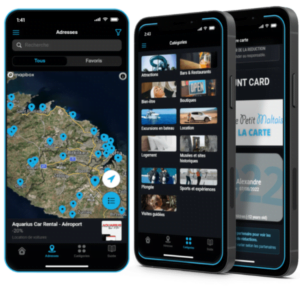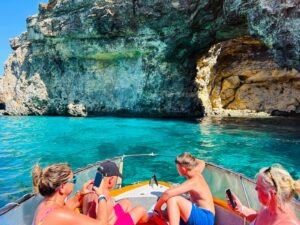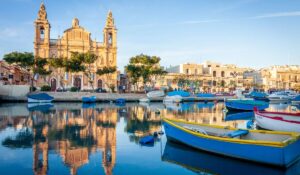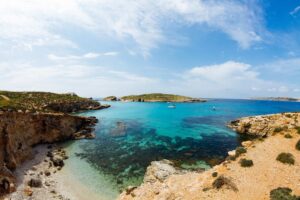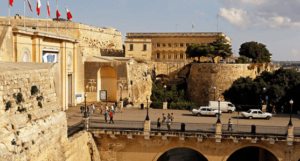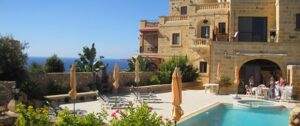Malta is an ideal destination for a language study holiday. There are many ways to learn English . Let’s see which are the most suitable and how to choose.
Back to school is coming… For many students, the start of the new school year and the month of September are synonymous with grey, gloomy weather, boring classes and a return to routine. But for some students or future students, the beginning of the school year is synonymous with beaches, good weather, parties, meetings, and fantastic courses!
And the lucky ones are the young people who enroll in language schools. But you still need to know how to choose your language studies in Malta…
Our experience and knowledge in this field show that the search for a quality linguistic stay constitutes a series of difficulties for many future students, which can create a feeling of incomprehension that significantly increases the risk of making a bad choice.
The offer is very wide and each school claims to be the best. Moreover, it is becoming more and more risky to rely on testimonials from other customers on the net, as they are sometimes falsified. In order to make the right choice, it is necessary to understand the schools’ offer in order to find the most suitable stay for your own needs.
Below you will find the most important parameters for understanding and choosing a language stay in Malta.

Identify your learning needs
First of all, you have to establish your needs but also your personal constraints.
– Why English: to travel, to study, to pass an exam or for a specific professional need?
– How much time can I devote to this language course?
– What budget can I give to this project?
– What is my level: beginner, intermediate, advanced?
These questions seem obvious but are often overlooked by candidates. Writing these things down and communicating them to the school or agency will save you time and allow you to have a more tailored response to your own situation.
Choose a content
General English: You will develop your basic language skills (listening, speaking, reading and writing) and improve your general level of English. You will enrich your vocabulary and deepen your mastery of English grammar.
Business English: You will acquire professional knowledge. You will develop your basic language skills which are: listening, speaking, reading and writing. You will study negotiation vocabulary and how to write letters to other professionals. Finally, you will feel more comfortable and confident when meeting other English-speaking professionals.
It is also possible to choose professional English courses for a specific field or occupation.
English to pass an exam (TOEFL, Cambridge, etc.)
Our advice: In many cases, it can be beneficial to mix general English classes to reinforce grammar and conversation with classes specific to your field of interest.
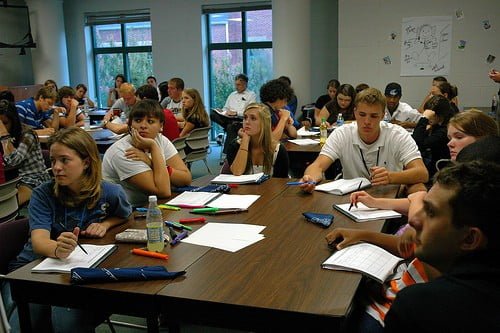
Number of hours per week
– Standard, 20 lessons of 45 minutes per week: this is reasonable, you will have time to deepen your knowledge but also to take advantage of the activities proposed by the school you have selected.
– Intensive, 30 lessons a week: more engaging, this formula combines group lessons with one-to-one tuition, which is very effective for improving conversation and vocabulary in subjects that interest you.
– Total immersion, more than 30 lessons per week: some schools offer a formula that allows you to be accompanied by an English teacher throughout the day (including activities and meals).
Our advice: The longer your stay, the more you are advised to reduce the number of classes per week to avoid saturation and weariness. Also consider taking a week’s break every 6 weeks. This will allow you to catch up on any backlog, take your mind off things and come back with more enthusiasm.
Class size in Malta
– Standard group: between 10 and 16 people
– Mini Group: between 4 and 6 people
– One to One: individual lessons
– A mix: you can benefit from a customized formula that will allow you to benefit from individual and group lessons.
It goes without saying that the smaller the number of students, the better for academic learning.
Our advice:
– By joining a group, you increase your chances of meeting new people, going out and practicing English after class.
– One-to-one lessons are very interesting if you have a lower level.
– In the low season, most schools don’t have enough students per class. Therefore, you will be in a mini group without paying the extra fee. And if you fall into a group that is too big for you, you can always pay the supplement on the spot and change groups.
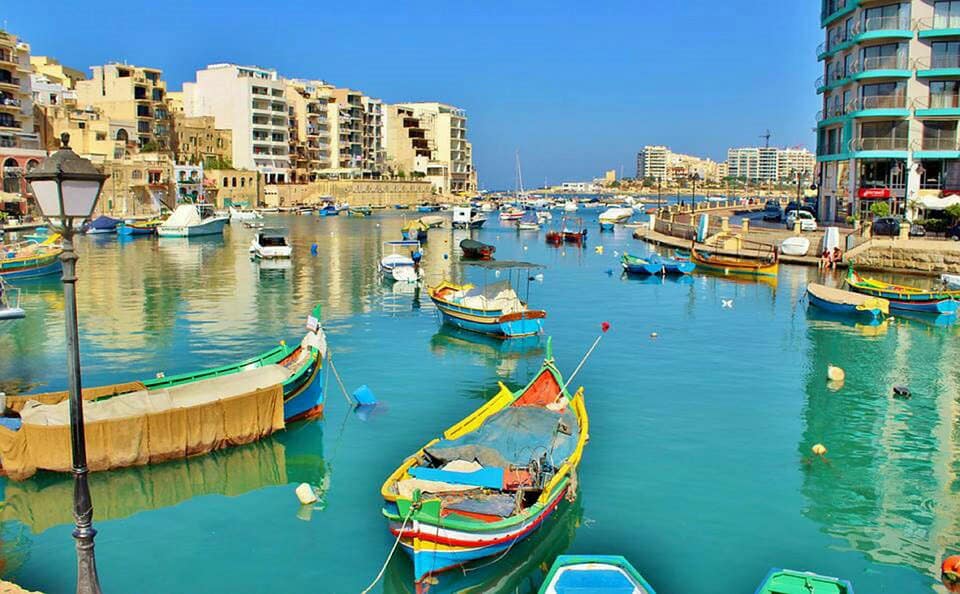
The duration of your language stay
Language stays can last for several weeks or even months. But it is not recommended to leave for less than two weeks. To be sure to acquire a basic knowledge of English and to be more at ease in your expression, it is better to prefer long stays and to stay with a host family.
The majority of Maltese schools use the following classification:
– Short stay: from 2 to 7 weeks
– Long stay: from 8 to 23 weeks
– Semester or language year: from 24 weeks
Obviously, the longer the stay, the lower the price per week.
Our advice:
– Don’t expect to make lightning progress for 2-3 week stays. You will learn mainly the basics. Unfortunately, if you don’t keep practicing them when you get home, you may soon forget them.
– If you choose the option extending over more than 7 weeks, we advise you to take a one-week break every six weeks, to avoid saturation. It is best to negotiate this with the school prior to registration.
– For stays of 6 months or more, you can save money by renting an apartment without going through the school.
The different formulas
With nearly 45 language schools throughout the Maltese archipelago, you are sure to find a solution that meets your expectations. The classic options are :
– Course only
– Course + accommodation
– All-inclusive packages (courses, accommodation, activities and services)
In addition to these classic packages, Maltese schools can offer you specific solutions to your needs:
– Language holidays for the whole family
– Stay for seniors
– Combining your courses with a specific activity
– Internship
Some important points about which formula to choose:
For short stays of less than 7 weeks, packages can be very advantageous, especially during the November, February and April vacations.
Regarding internships in Malta:
– Trainees are not required to be remunerated, regardless of the length of their internship.
– The legal working week on the Maltese archipelago is 40 hours.
– Some sectors recruit more than others: e-gaming, all tourism activities, language schools in marketing or customer relations, as well as IT and telephone support.
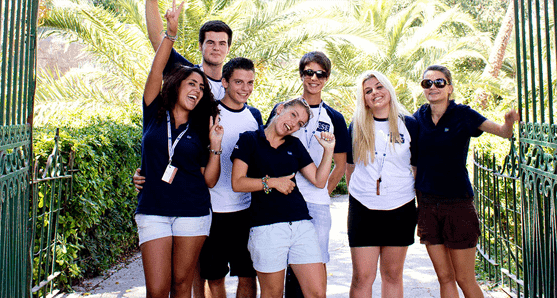
Choose the school
This is certainly the most difficult choice to make. Indeed, all the schools look the same on the website and their marketing departments have done a good job of making them appear the best in the world…
However, not all schools are equal and not all schools know how to do everything “right”. For example, some have excellent offerings for business English while others have packages more suited to teenagers. There are also those that offer very interesting programs for exams or those that have an interesting offer for English teachers.
Our advice
– Define your needs precisely, and don’t hesitate to send the school a set of specifications. This is an opportunity for her to highlight her specialty and show you that she has a special offer for you.
– We can only advise you to take a good look at the sites, to note the school’s certifications and also to read the positive or negative reviews if you find any on the internet. If these reviews seem fake to you, it gives you an idea of how serious the school in question is.
– Finally, we can confirm that the best schools are not necessarily the most expensive.
The best-known schools in Malta
ACCOMMODATION DURING YOUR STAY IN MALTA
Here are the different options that will be offered by the schools:
TYPE OF HOUSING
– Host family
– Teen camp
– Residence
– Apartment (single or shared)
– Hotel
THE TYPE OF ROOM
– Single (single or double bed)
– For couples (double bed)
– Shared (2, 3, 4 single beds)
– Dormitory (single beds and/or bunk beds)
THE TYPE OF SERVICE
– Full board
– Half board
– Breakfast
– No meal
Our advice:
Do not neglect the question of accommodation or shared rooms. For some, it is a rewarding experience. For others, this could prove to be an ordeal and could spoil the whole stay. This is an important personal issue to consider.
Most host families are very professional and welcoming, some much less so. The earlier you start, the better your chances of getting the best host families.
In Malta, it is possible to find furnished accommodation for any length of time. The rates are much lower than the short-term furnished accommodation offered by the school.
THE PRICE OF A LANGUAGE COURSE IN MALTA
The price is usually composed of several elements. Make sure you understand the offer to compare:
– Course prices: generally quoted by the week.
– Registration fee: A one-time fee, not based on the number of weeks.
– Options: Such as requesting to be in a mini group or alone in a class, or additional services such as airport transfers, childcare, etc.
– Accommodation and its options (single room, special diet, being the only person of your nationality in the accommodation, etc.).
– Activities (outings, evenings, sports, water sports, cultural visits, etc.)
– Training costs: a fixed amount. Some schools include the tuition fee in the registration fee.
Our advice:
The price is not always a guarantee of quality. The best schools in Malta are not necessarily the most expensive.
While Maltese schools often refuse to negotiate on price with the final client, they are more willing to give some price advantages for long stays or group trips.
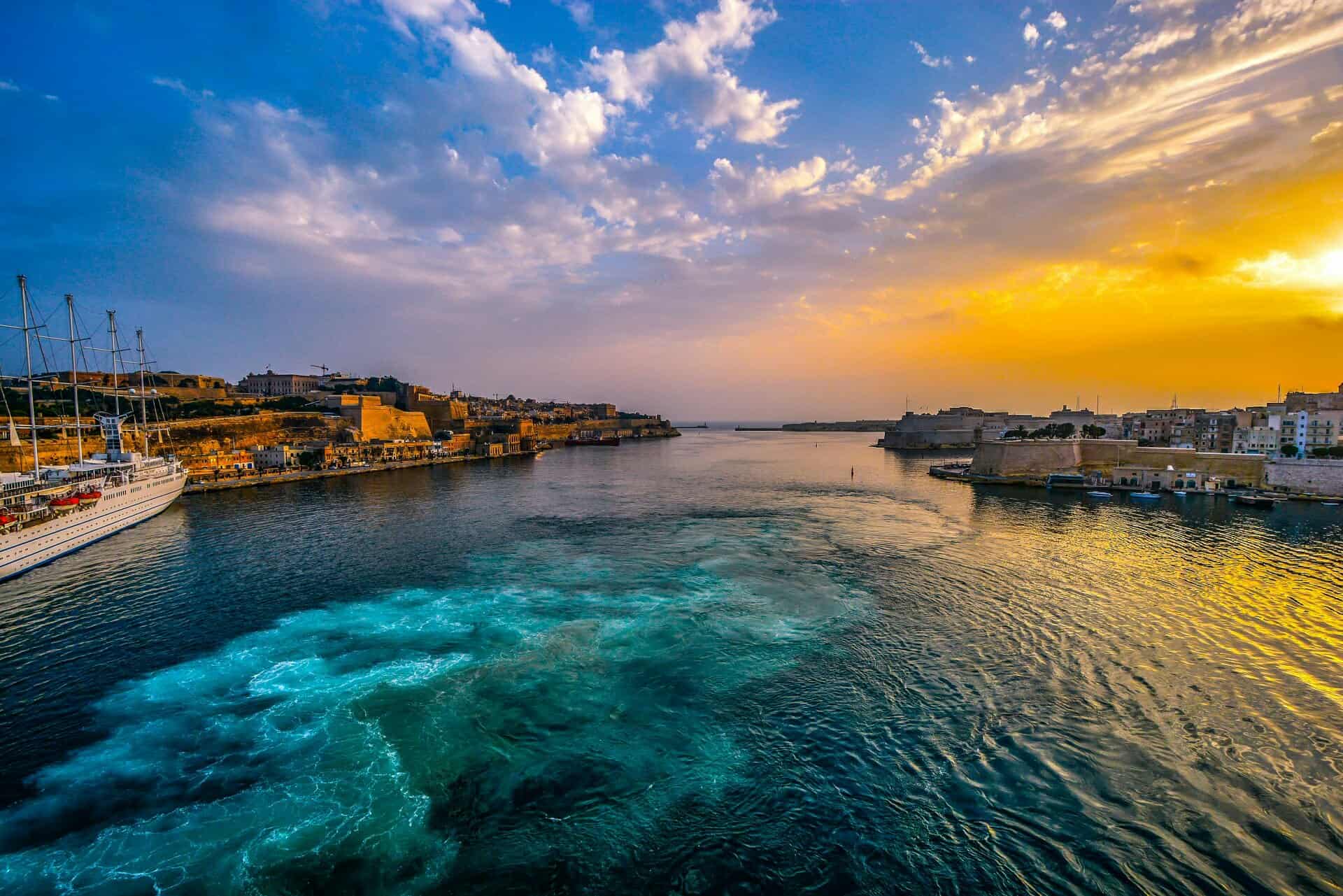
WHEN TO GO TO MALTA ?
Obviously, your personal constraints are at the base of this decision but if you have the choice, here are the elements that could influence you:
– In summer, prices are much higher and classes are usually filled to capacity. Off-season stays are much more enjoyable and more effective than high-season stays.
– Although Malta enjoys 300 days of sunshine a year, winters are quite cold and apartments are rarely well insulated. So make sure there is a reversible air conditioning or a good heating. From December to March, expect a fairly wet winter with two to three days of sunshine per week. But don’t worry, there are many things to do in Malta when it rains, the proof is here.
– During the winter school vacations, most schools offer all-inclusive packages, which are much more attractive than the classic formulas.
SCHOOL OR AGENCY?
If you know exactly what you want and have a good grasp of all the parameters to make the right choice, there is really no difference between the two channels for buying your language stay. Prices are often the same because agencies are usually paid by the schools and not by the clients.
Depending on the quality and seriousness of the agency, it can provide the following services
– Personalized advice in your language
– Time-saving pre-selection of schools, courses and accommodation to suit your needs
– Some local agencies (in the destination country) offer free additional services for your stay: practical information, change of class, accommodation, assistance in case of problems, early departure, etc.
– Some agencies negotiate special promotions for their customers.
SYNTHESIS
A language stay is an investment in time and money, it would be a shame not to succeed.
To improve your chances of finding the ideal stay, ask yourself the right questions, write your mini specifications and send them to the agencies or schools you have selected.
Make your checklist and compare offers by favoring quality, security and services offered. From there, you can choose the most advantageous offer for you.


